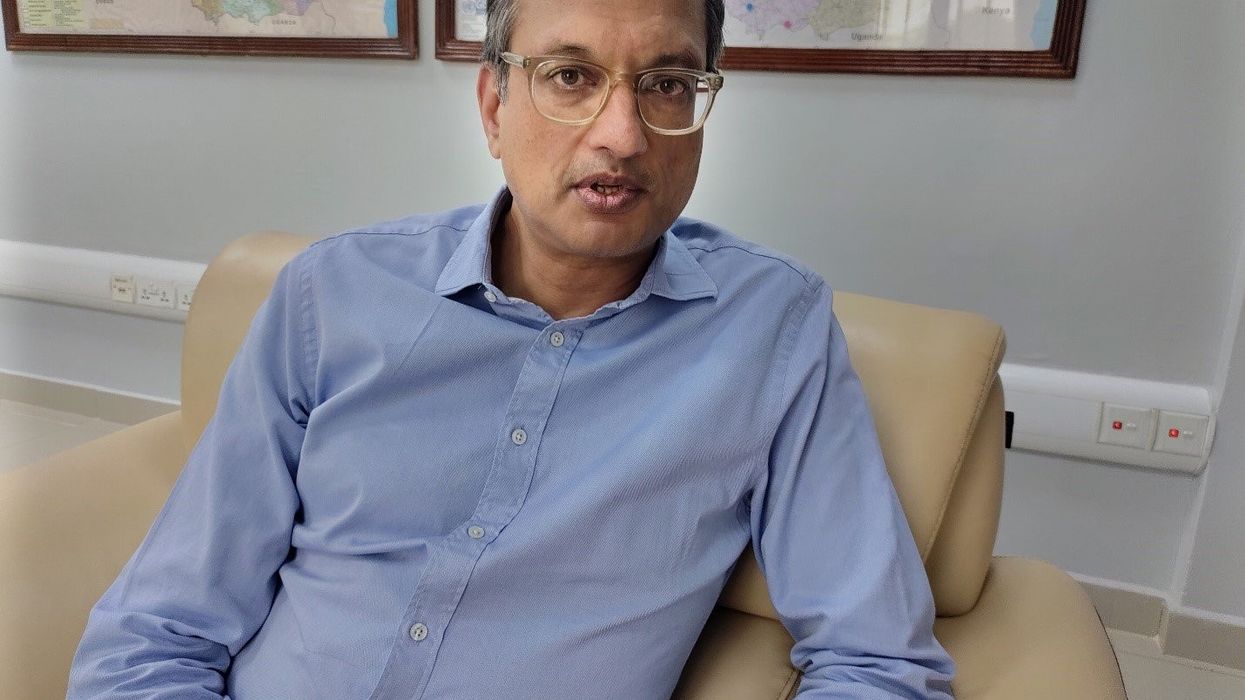ARAFAT JAMAL, a senior diplomat with the United Nations High Commissioner for Refugees (UNHCR), has called on Ugandan Asians not to lose their collective memories or their history.
Speaking at the ceremony last week to wind down the India Overseas Trust, he referred to the work done by his late father, Dr Vali Jamal, who conducted hundreds of interviews for his book, Ugandan Asians: Then and Now, Here And There, We Contributed, We Contribute.
“My father never stopped writing,” said Jamal. “You can lose your homes and you can lose your homeland. But who are you without your memories or your history?”
He explained why his father set out to write the book. “My name is Arafat (Jamal),” he began. “And I’m the son of both Ugandan and Kenyan parents.”
Vali was born in Mombasa in 1941 and came to Uganda in 1946 with his father, who established the first branch of the Diamond Jubilee Investment Trust. After schooling in Kampala, Vali went to Trinity College, Cambridge, and did his PhD in economics at Stanford University. He was the senior economist at the UN International Labour Organisation (ILO) for 25 years.
After his death, aged 80, in Kampala, a tribute noted that “Vali was obsessed with the story of the Ugandan Asian expulsion. He was teaching at Makerere University when the announcement of the expulsion was made.
“Through interviews, archival records, press cuttings and rigorous probing, Vali managed to put together a manuscript which consisted of about two million words for a book reaching a page count of almost 3,000, and containing thousands of images.
“His key objective was to provide a ‘voice’ and document meticulously the pain, hardship and displacement that occurred as thousands of Asian Ugandans, many of them Ugandan citizens, were airlifted to western countries such as Germany, Sweden, Norway and the United Kingdom.”
The author noted at one stage: “My book is done at 2,650 pages after 13.8 years.”
His son Arafat has a BA in history, a BSc in urban and regional studies from Cornell University, and an MA in forced migration from Oxford.
Jamal said his father was one of those for whom the expulsion from Uganda in 1972 “was seared into his memory. And he needed to revisit repeatedly. Why were we expelled? How did we get there? And perhaps most importantly, what was it like? What were the memories of all those Indian families, the humble and the mighty alike, who once called Uganda their home?
“And so began a decade’s long quest, perhaps an obsession, through hundreds of interviews, months of archival research and more. My father embarked on what some have called his magnum opus, his labour of love. He himself referred to it simply as a book, with oral stories at the heart of it, stories of trembling men crossing the ocean, kala pani (black waters) along ancient seafaring routes, and then adapting almost overnight to a life of trade (in East Africa).
“There are also stories of starting afresh, in the UK, Canada and elsewhere. In these accounts, there is hardship, much of it, and always lots and lots of work. There may have been racism. But what most people seem to retain in their memories is the warmth and the generosity of strangers.
“I think dad started with the idea that those who were there in Uganda would be the ones to enjoy the book. But he came around to seeing how important it is for the younger generation to know their lineage. And he dedicated the book to those who have departed – and to those whose journey had just begun.”
Jamal said: “Thirty years ago, I joined the UN High Commissioner for Refugees. And since then, I have worked with displaced people in the borders of Afghanistan and Turkmenistan, in the Greater Levant, in revolutionary Libya, in the wetlands of South Sudan and, of course, in the meeting rooms of Geneva and New York.
“With more than 30 million refugees worldwide today, I can say that my work provides a perspective and a counterpoint to the Uganda Asian chapter in forced displacement.”
He said the Uganda Asian experience was not as bad as the much harsher conditions refugees face today. “I look at our experience versus those of other refugees, and what helped us to survive and to thrive. Quite remarkably, it was the global cooperation, the way that dozens of countries came in to take each and every Ugandan Asian and to find a solution for them,” he pointed out.
“This is an example that has rarely been repeated, and we should hold it up as something to follow. Things have got worse on the refugee front since the 1970s. Conflicts begin and are generated, but they never end.”
He emphasised: “Yes, our expulsion was drastic, and it was shattering, but it pales sometimes in comparison to what we see around the world. And I think we can consider we were lucky.




